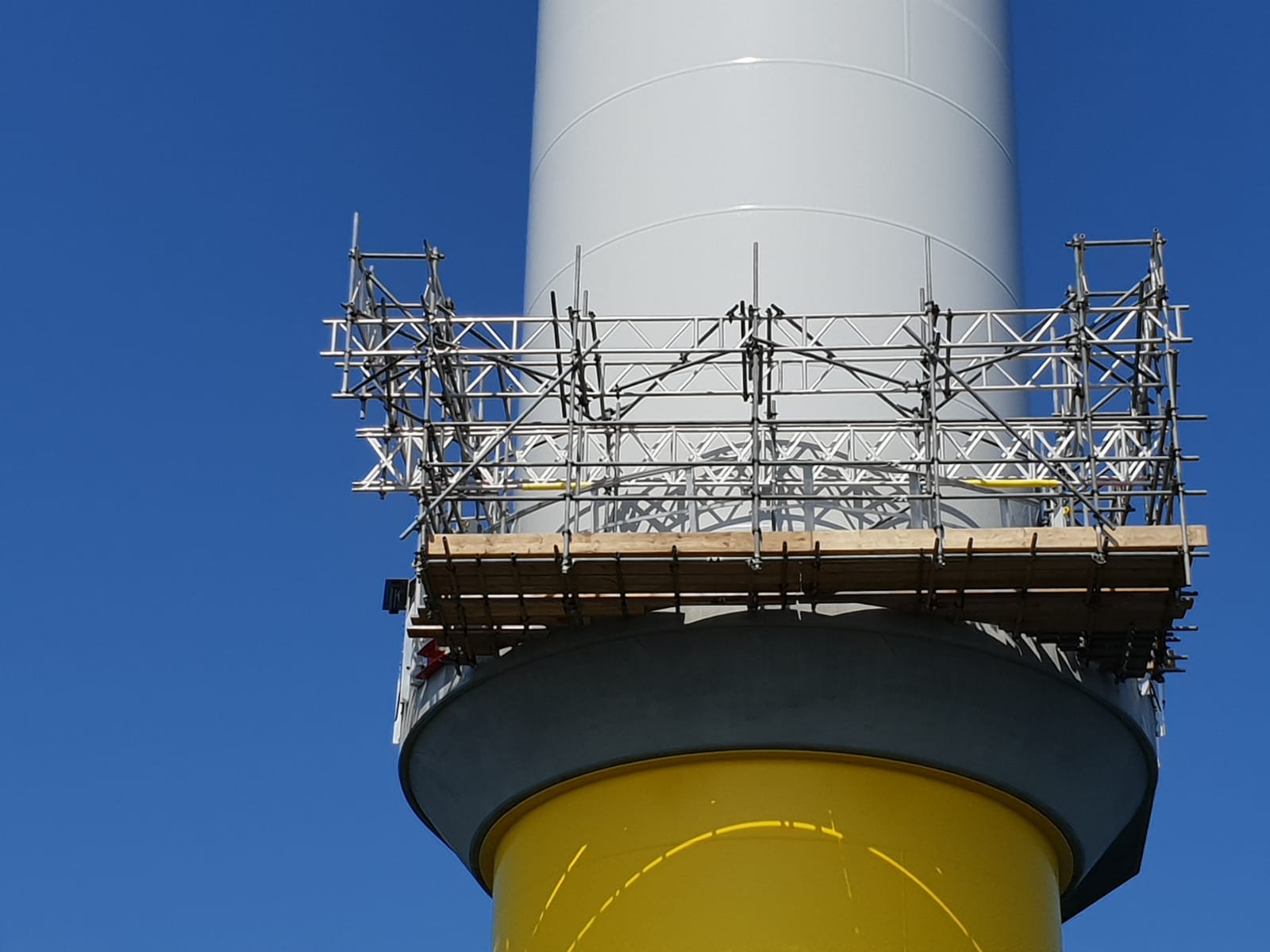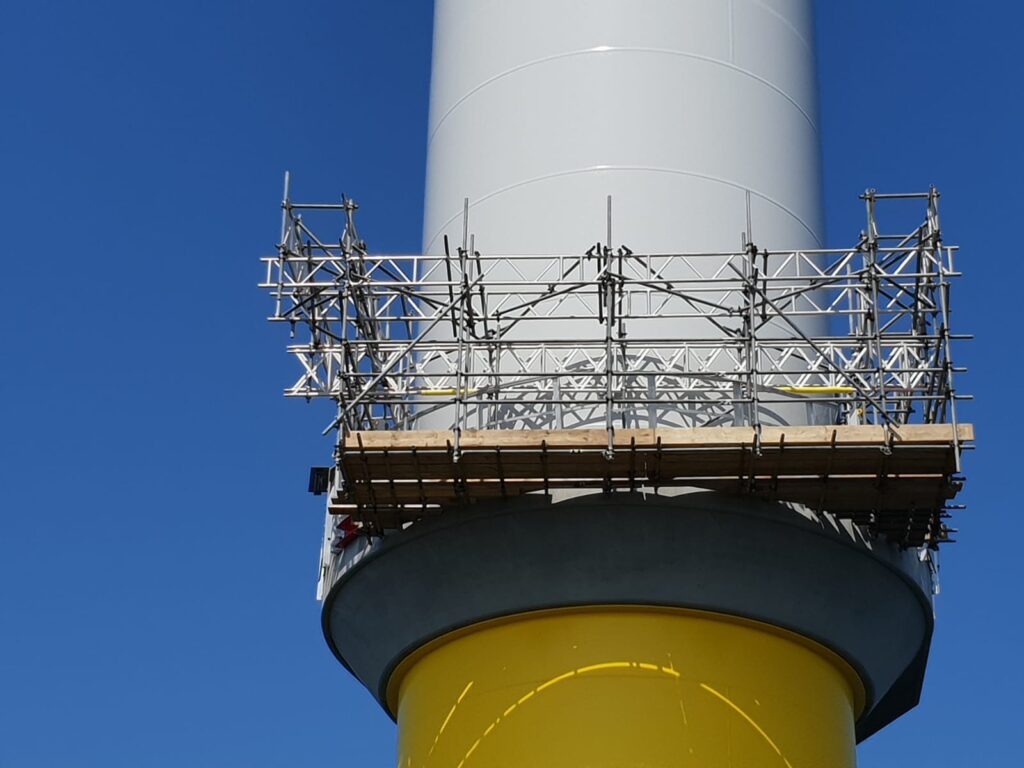Date: April 2017 – 2019
Location: Barrow-in-Furness, United Kingdom
Client: Orsted
Windfarm Size: 659 MW, 87 turbines
Scope of Work: Scaffold Design – Access Scaffolding – Site Support
This was BGB Scaffolding’s first project for Orsted and involved the provision of scaffolding as a centralised contractor. Initially providing access solutions for the commissioning of the OSS, the attitude and ability demonstrated by the BGB team led to additional work scopes with both the array and export cable suppliers.
During the project an Amplemann damaged handrails and the concrete walkway around the platform. Our site Supervisor, supported by other members of the scaffold team, had to report to the asset with immediate effect, installing temporary handrails to close off an open void. BGB then created scaffolding designs for the repairs, considering space constraints and the requirement to keep the turbine operational throughout the entire process. This meant that the planning process, RAMS and design for this scope of works were of high risk.
Being reactive to additional scopes of scaffolding outside of the Offshore Sub-Station is a major strength of our offshore teams, our diverse approach meant that BGB delivered the scope with no issues.
Due to the reputation BGB had gained whilst on site, and the team’s ethos to go above and beyond, not only performing scaffolding duties, but to supply additional duties when capacity allowed, BGB were able to secure, and deliver successfully, multiple site works. This effective relationship led Orsted to look into awarding a centralised scaffolding contractor for projects moving forward.

